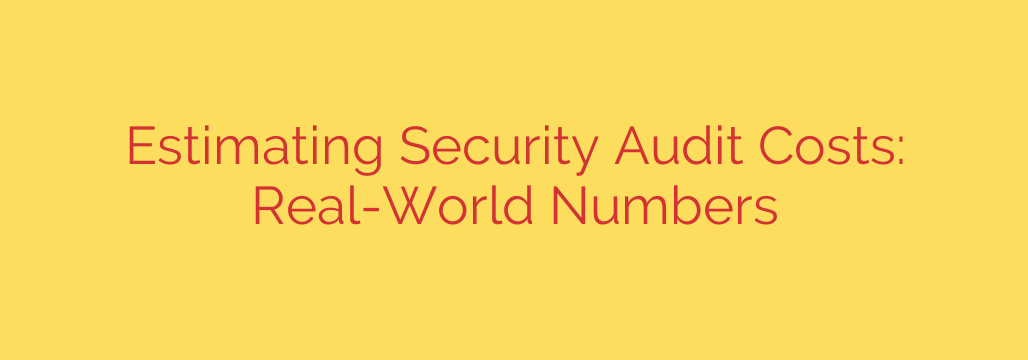
Decoding Security Audit Costs: What to Expect and How to Budget
Understanding the financial commitment required for a security audit is crucial for businesses of all sizes. Navigating the complexities of cybersecurity can feel daunting, but a well-defined budget and a clear understanding of the contributing factors can make the process manageable and effective. This article breaks down the key elements influencing the cost of a security audit, providing practical guidance for planning your budget.
One of the most significant factors is the scope of the audit. Are you focusing on a specific system, your entire network infrastructure, or perhaps a particular compliance standard like HIPAA or PCI DSS? A broader scope naturally translates to a higher price tag. Consider starting with a risk assessment to identify your most vulnerable areas, allowing you to prioritize and potentially narrow the audit’s focus, therefore optimizing costs.
The complexity of your systems also plays a crucial role. Older, more intricate infrastructure often requires more time and specialized expertise to assess thoroughly. Newer, cloud-based systems can sometimes be audited more efficiently. Be prepared to provide detailed documentation of your systems to the auditing firm, as this can significantly reduce the time they need to spend understanding your environment.
Another key element is the type of audit you need. A simple vulnerability scan is far less expensive than a comprehensive penetration test or a full security assessment encompassing policy reviews, employee training evaluations, and physical security analysis. Choosing the right type of audit that aligns with your risk profile and compliance needs is paramount.
The experience and reputation of the auditing firm will also affect the price. Established firms with specialized expertise typically charge more, but their experience can often lead to more thorough and insightful results, potentially saving you money in the long run by identifying critical vulnerabilities early on. Don’t be afraid to ask for references and case studies to assess their capabilities.
Geographic location can also play a role. Auditors in metropolitan areas might command higher rates than those in less populated regions. However, remote auditing capabilities are increasingly common, potentially opening up options beyond your immediate geographic area.
So, what are some actionable tips to keep costs down without compromising security?
- Clearly define the scope: Work with the auditing firm to precisely define the systems and areas to be assessed.
- Prepare thoroughly: Gather all relevant documentation, including network diagrams, system configurations, and security policies.
- Prioritize remediation: Focus on addressing critical vulnerabilities identified during the audit.
- Consider phased audits: Break down the audit into smaller phases, focusing on the most critical areas first.
- Maintain continuous monitoring: Implement tools and processes for ongoing security monitoring to detect and address potential issues proactively.
Finally, remember that a security audit isn’t just an expense; it’s an investment in your business’s long-term security and resilience. By understanding the factors influencing costs and taking proactive steps to prepare, you can ensure you get the most value from your audit and strengthen your overall security posture. Failing to invest in robust cybersecurity can result in massive losses due to data breaches and damage your business’s reputation.
Source: https://www.helpnetsecurity.com/2025/07/16/estimating-security-audit-costs/








